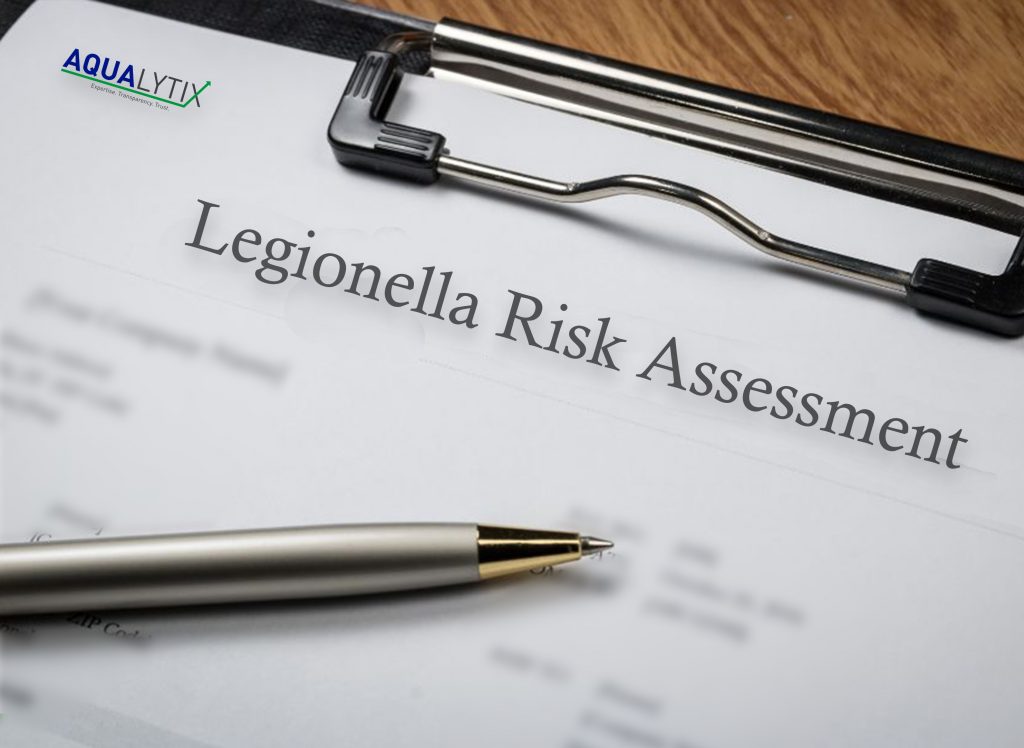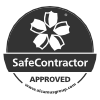Why an understanding of the BS8580:2019 Standard is vital to ensuring a compliant Legionella Risk
A compliant Legionella control scheme must be based on a compliant risk assessment, but what does that really mean? What do you need to do to comply with the British standard?
Many Legionella service providers claim that their risk assessments are conducted and produced in line with the British standard for Legionella risk assessments, BS8580-1: 2019, but what does that really mean? What do you need to do to comply with the British standard?

Author
The article was written by Kris Rowland, our Head of Technical, Training and Compliance. Kris has more than 20 years of experience in the industry and is responsible for monitoring our clients’ compliance.
Sign up to our newsletter
Keep up to date with the world of water treatment
Agreeing The Scope
Well, it all starts at the beginning of the Risk Assessment process, agreeing the ‘scope’, or to put it another way ‘what are we assessing and what if anything is to be excluded’. Very often we hear stories from end users (building owners / operators) regarding how an assessment has not covered all they were expecting it to and on most occasions, this is normally due to the scope between the end user and service provider not being specific enough. The British Standard for Legionella risk assessing discusses the scope of a risk assessment in clause 5.2 as does the Legionella Control Associations ‘standard for service delivery’ which makes the following points related to agreeing a scope:-
The British Standard for Legionella Risk Assessing
- Which buildings are to be included in the assessment and which if any are to be excluded.
- Which water systems are to be assessed and which if any are to be excluded.
- Will the assessor have access to any previous Legionella risk assessments and/or schematic diagrams.
- Are there any restrictions when capturing photographs of assets or their locations.
- Will a site escort be provided who has sufficient knowledge of the building / water systems included in the scope of the assessment.
- What is the mechanism for obtaining data that cannot be collected at the time of the assessment from the ‘end user’.
- If ‘third party’ reports are to be included as part of the assessment process how will these be obtained and included in the final assessment.
- Are there any site specific hazards to be aware of and what PPE / RPE or other safety equipment will be required.
- How will the independence of the risk assessor be established if the assessment is to be carried out by an organisation currently or previously involved in the control scheme.
- Will the assessor be required to hold specific safety permits and/or training to access the areas being assessed.
- If immediate concerns to health are identified during the assessment who should these be reported to and how is that reporting to be undertaken.
- Are schematic diagrams to be provided along with the risk assessment.
- Are asset registers to be provided as part of the assessment.
- Is a written scheme to be prepared in addition to the Legionella risk assessment and if so, will the previous scheme be provided for assessment and potential amendment.
- In what format will the final documents be provided, electronic, hard copy or both and who these documents are to be provided to.
- In what timeframe should the assessment be completed and provided to the ‘end user’.
- What is the ‘query’ process for the final assessment and what is the mechanism for the ‘end user’ to raise concerns.
- If there is to be an ‘executive summary’ what is to be included.
So, taking these points into consideration its very clear that as an ‘end user’ (someone requesting a Legionella risk assessment to be completed) critical information is required to be clarified and documented in an agreement prior to any assessor ever setting foot on site. If these points are not addressed, it is likely that the output in the form of the risk assessment will not meet the ‘end users’ needs and can leave an organisation feeling that they have been ‘short changed’.
If your current risk assessment provider is not raising these points with you and documenting the details prior to conducting assessments, then as the ‘end user’ and buyer of the service you must raise the above and make yourself satisfied that you are going to receive an assessment that meets your needs.
Demonstrating Independence
You will have noticed that one of the points made above concerns the independence of the risk assessor performing the assessment.
BS8580-1:2019 makes the points that ‘the risk assessor should be able to demonstrate impartiality and independence when carrying Legionella risk assessments’ and ‘the risk assessor or assessing organisation should not allow commercial, financial, or other pressures to compromise impartiality and should be able to demonstrate valid reasons for any proposed course of action.
It should be clear, for example, why a recommendation has been made to clean cold water storage tanks.’ But why is this an important consideration for an ‘end user’? Well, a Legionella risk assessment will very often identify remediation actions that are necessary to remove or mitigate Legionella risk associated with the water system. If the assessor’s impartiality is called into question or cannot be demonstrated then this potentially brings into question the failures identified by the assessor and their recommendations for the removal or mitigation of that risk, especially where it would be financially advantageous to the organisation performing the assessment.
To avoid this becoming an issue either during the assessment or at the point where the completed assessment is provided to ‘end user’ the mechanisms for ensuring independence should be reviewed by the ‘buyer’ to ensure they are satisfied with the safeguards which have been put into place.
Another factor that often comes into play within organizations with large building portfolios is the issue of proportionality. We will explore this topic in more depth in our next article.

Our Legionella Risk Assessment Services
Are you looking for a Legionella Risk Assessment of your water system?
We can help you identify and understand any potential risk posed by Legionella and help you implement measures to mitigate and control this risk.










